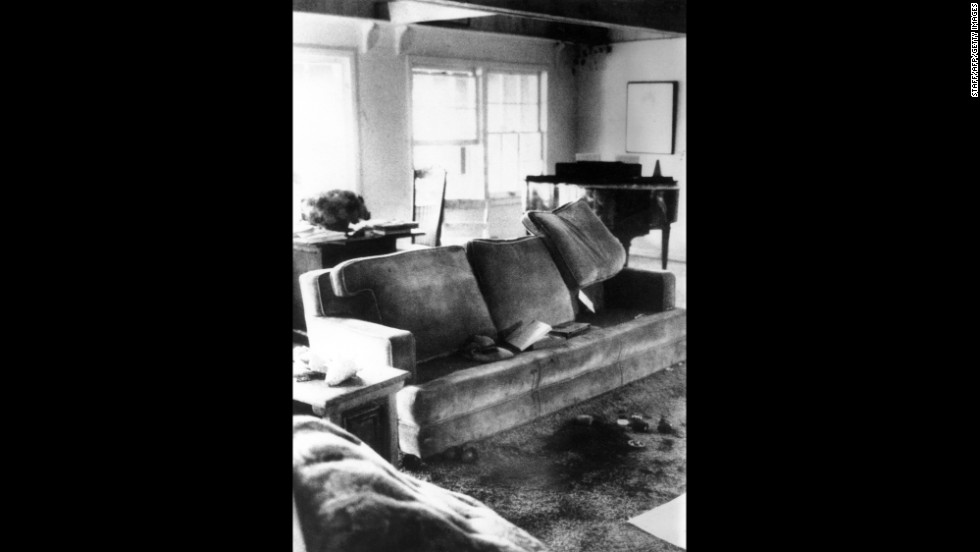The Manson Gang, led by the notorious Charles Manson, remains one of the most infamous cults in American history. Their chilling crimes and the subsequent trial have left an indelible mark on society. The story of the Manson Gang continues to fascinate and terrify people worldwide, serving as a cautionary tale about the dangers of blind devotion and manipulation.
The Manson Family, often referred to as the Manson Gang, was a pseudo-religious cult formed in California during the late 1960s. The group, led by Charles Manson, gained notoriety for a series of brutal murders carried out by its members. The crimes shocked the nation and exposed the dark underbelly of the counterculture movement.
This article delves into the history, ideology, and impact of the Manson Gang, exploring the events that led to their downfall. By examining their story, we can better understand the psychology behind cults and the dangers they pose to individuals and society.
Read also:Exploring Broken Arrow Ok A Hidden Gem In Oklahoma
Table of Contents
- Biography of Charles Manson
- Formation of the Manson Gang
- The Ideology of the Manson Gang
- The Manson Gang Murders
- The Trial of the Manson Gang
- Impact on Society
- Psychology of Cults
- Legacy of the Manson Gang
- Modern-Day Cults
- Conclusion
Biography of Charles Manson
Early Life
Charles Manson was born on November 12, 1934, in Cincinnati, Ohio. His early life was marked by instability and crime. Raised by a single mother, Manson spent much of his childhood in and out of reform schools and juvenile detention centers. By the age of 18, he had already been convicted of multiple offenses, setting the stage for a life of crime.
Key Facts
| Full Name | Charles Milles Manson |
|---|---|
| Date of Birth | November 12, 1934 |
| Place of Birth | Cincinnati, Ohio |
| Known For | Leader of the Manson Family cult |
| Death | November 19, 2017 |
Formation of the Manson Gang
The Manson Gang began forming in the mid-1960s when Charles Manson moved to California, drawn by the counterculture movement. He attracted a following of disenchanted youth who were disillusioned with mainstream society. Manson's charismatic personality and promises of a utopian lifestyle drew people to him, eventually forming the core of what would become the Manson Family.
The Ideology of the Manson Gang
The Manson Gang's ideology revolved around a distorted interpretation of Bible verses and apocalyptic predictions. Manson preached about an impending race war he called "Helter Skelter," inspired by the Beatles' song of the same name. He believed that this war would lead to the collapse of society, allowing the Manson Family to rise and rule the world.
The Manson Gang Murders
Shocking Crimes
The Manson Gang gained international notoriety for a series of brutal murders in August 1969. The most infamous of these was the murder of actress Sharon Tate, who was eight and a half months pregnant at the time. The group also killed four others at Tate's residence, including her friends and acquaintances.
- Sharon Tate
- Abigail Folger
- Voytek Frykowski
- Jay Sebring
- Wojciech Frykowski
Motivation Behind the Murders
Manson believed that the murders would incite racial tension and trigger the "Helter Skelter" race war. He instructed his followers to leave clues at the crime scenes to implicate black individuals, hoping to escalate racial violence.
The Trial of the Manson Gang
The trial of the Manson Gang began in June 1970 and lasted for seven months. It was one of the most publicized trials in American history. Manson and his followers were found guilty of murder and conspiracy to commit murder. They were sentenced to death, but their sentences were later commuted to life in prison due to a change in California's death penalty laws.
Read also:Discover The Best Movie Experience At Amc Roosevelt Field A Complete Guide
Impact on Society
The Manson Gang's crimes had a profound impact on American society. The murders shattered the illusion of the idyllic 1960s counterculture movement and exposed the darker side of the era. The case led to increased scrutiny of cults and the dangers they pose, prompting lawmakers to implement stricter regulations on cult activities.
Psychology of Cults
Cults like the Manson Gang often prey on vulnerable individuals, exploiting their desires for belonging and meaning. Manson's ability to manipulate his followers highlights the psychological tactics used by cult leaders. Understanding these tactics can help prevent similar tragedies in the future.
Legacy of the Manson Gang
The legacy of the Manson Gang continues to loom large in popular culture. Their story has been the subject of numerous books, films, and documentaries. While the group's influence has waned, their impact on society remains a stark reminder of the dangers of extremism and manipulation.
Modern-Day Cults
Despite the notoriety of the Manson Gang, cults continue to exist in modern times. Groups such as the Branch Davidians and the Peoples Temple have followed in the footsteps of the Manson Family, demonstrating the ongoing threat posed by cults. Awareness and education are key to combating these dangerous organizations.
Conclusion
The Manson Gang's story is a chilling reminder of the dangers of cults and the destructive power of manipulation. By examining their history, ideology, and impact, we can better understand the psychology behind these groups and work to prevent similar tragedies in the future. If you found this article informative, please consider sharing it with others or exploring more content on our site.
References:
- Jones, S. (2019). Helter Skelter: The True Story of the Manson Murders. New York: Berkley Publishing Group.
- FBI. (2021). Cult Awareness and Education. Retrieved from https://www.fbi.gov
- National Geographic. (2020). The Manson Family: A Timeline of Events. Retrieved from https://www.natgeotv.com


